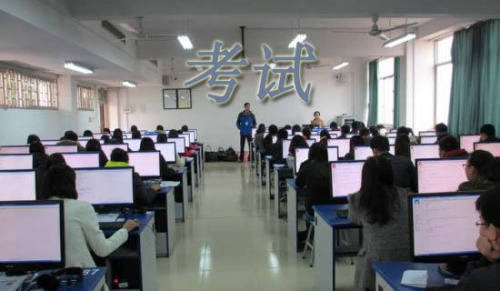2017下半年翻译考试高级笔译练习题及答案
试题一

American mythology loves nothing more than the reluctant hero: the man -- it is usually a man -- whose natural talents have destined him for more than obliging obscurity. George Washington, we are told, was a leader who would have preferred to have been a farmer. Thomas Jefferson, a writer. Martin Luther King, Jr., a preacher. These men were roused from lives of perfunctory achievement, our legends have it, not because they chose their own exceptionalism, but because we, the people, chose it for them. We -- seeing greatness in them that they were too humble to observe themselves -- conferred on them uncommon paths. Historical circumstance became its own call of duty, and the logic of democracy proved itself through the answer.
在美式神话中, 主角通常是那些不知不觉中成为的英雄: 一般而言,他就是一个人, 因禀赋异常, 注定此生不能默默无闻。华盛顿原本更愿意当农民,而不是领导国家; 杰弗逊, 曾立志要成为一名作家; 而马丁路德只是一名牧师.据说是公众要求他们不能敷衍塞责,埋没才华; 是我们要求这些伟人必须要振作起来,追求卓越。我们选择了他们,是因为我们看到他们的伟大,---尽管他们谦虚地认为自己并不出众— 是我们把他们推上了不寻常的人生道路。换言之,历史境遇和民主体制造就了这些英雄。
Neil Armstrong was a hero of this stripe: constitutionally humble, circumstantially noble. Nearly every obituary written for him this weekend has made a point of emphasizing his sense of privacy, his sense of humility, his sense of the ironic ordinary. Armstrong's famous line, maybe or maybe not so humanly flubbed, neatly captures the narrative: One small step for [a] man, one giant leap for mankind. And yet every aspect of Armstrong's life -- a life remembered for one act of bravery but distinguished ultimately by the bravery of banality -- made clear: On that day in 1969, he acted on our behalf, out of a sense of mission that was communal rather than personal. The reluctant hero is also the self-sacrificing hero. The reluctant hero is the charitable hero.
阿姆斯特朗就这种类型的英雄,个性谦卑的他响应时代的号召,成为人类的英雄。本周末,几乎只要是他的讣告,都会提到:阿姆斯特朗深居简出、为人谦虚,以至于让他的`平凡变得具有讽刺意味。 他的著名格言,传神地概括了他的壮举,他可能和所有人一样犯错:我的一小步代表了人类的一大步。人类将铭记他的勇敢,但因为他如此毫无顾忌地承认自己的平庸,让他此生并不平凡。1969年的某一天,他代表整个人类完成的使命。不情愿的英雄同时还具有勇于牺牲的精神,仁慈宽厚。
试题二
Since 1750, the world has seen four industrial revolutions. The first one took place in Britain; and China missed the boat. The second one occurred in the latter half of the 19th century; and China missed the boat. The third one was driven by the revolution in communication technology in the second half of the 20th Century. This time, Chinese leaders realized that it was a historic moment of change, and China caught the wave.
从1750年以来,世界进行了四次工业革命:第一次就是英国工业革命,中国失去了机会。第二次是十九世纪下半叶美国的工业革命,中国也同样失去了机会。第三次工业革命,是20世纪后半叶出现的信息革命。当时中国的领导人敏锐地认识到了这一重大历史变化,中国抓住了这次信息革命的重大机遇。
The 21st century is receiving the Fourth Industrial Revolution-the Green Revolution, symbolized by this global move to reduce emission. This time, we hope that China can be the innovator, the leader and driver running head-to-head with the U.S., Europe and Japan. To achieve this, China has to accomplish two things transition from a high carbon economy to a low carbon economy; second, participation in global governance. i.e., to shift its focus from national governance to regional and global governance.
进入二十一世纪,人类迎来了第四次工业革命——绿色工业革命。可以说这一次全球减排,就是绿色工业革命的标志。我们希望这一次工业革命中国要成为领导者、创新者和驱动者,和美国和欧盟和日本站在同一起跑线上领导这场革命。今后中国领导人面临两大迫切问题:一是如何实现中国经济转型,即从高碳经济转向低碳经济;二是如何参与全球治理,即从国家治理转向地区治理、全球治理。
【2017下半年翻译考试高级笔译练习题及答案】相关文章:
2017翻译资格考试高级笔译练习题及答案11-10
2017翻译考试高级笔译模拟试题及答案10-29
2017高级翻译资格考试笔译训练题及答案11-10
2017高级翻译资格考试笔译仿真题及答案11-10
2017翻译资格考试高级笔译模拟题及答案10-29